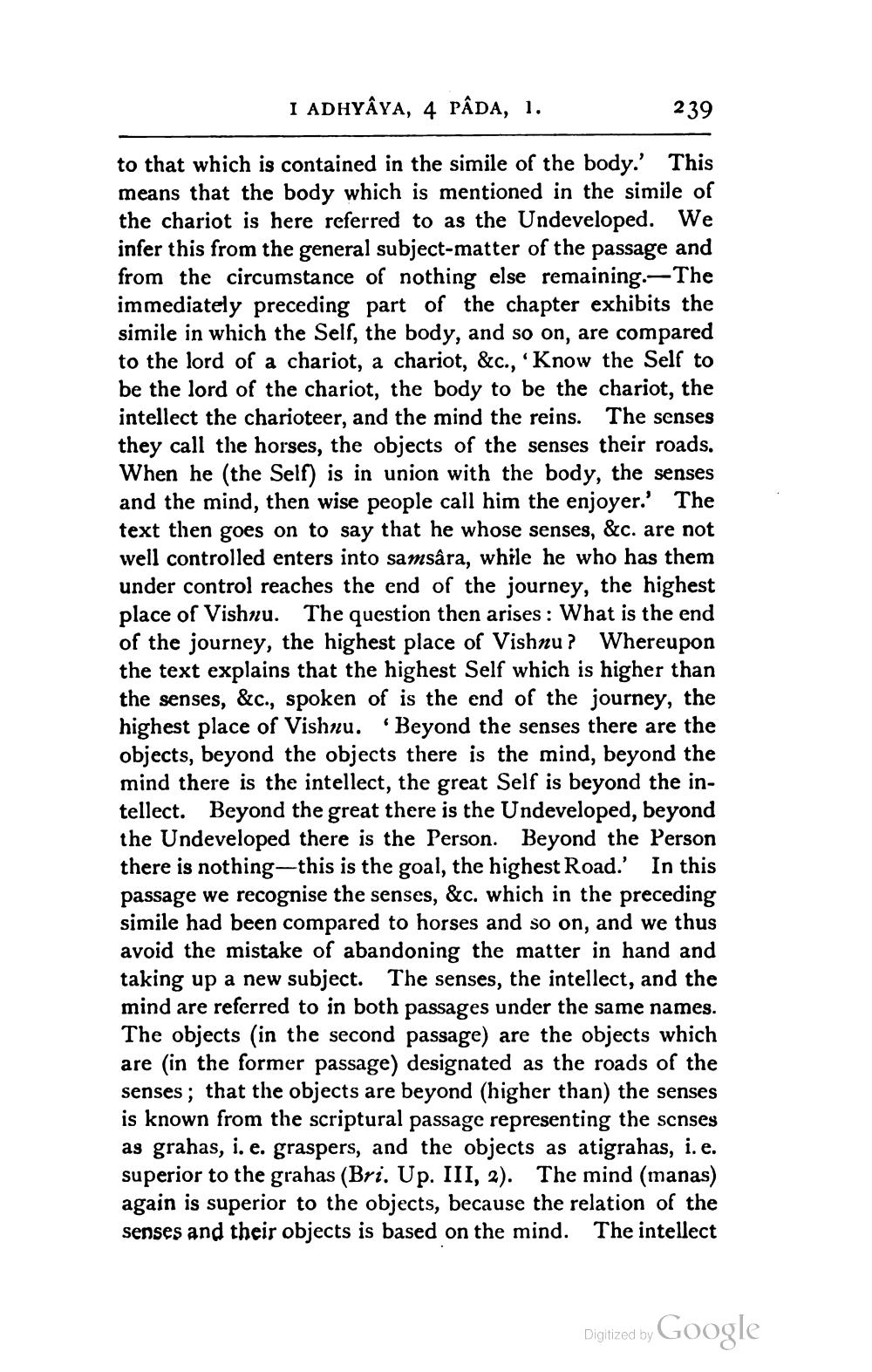________________
I ADHYAYA, 4 PÂDA, 1.
239
to that which is contained in the simile of the body.' This means that the body which is mentioned in the simile of the chariot is here referred to as the Undeveloped. We infer this from the general subject-matter of the passage and from the circumstance of nothing else remaining.—The immediately preceding part of the chapter exhibits the simile in which the Self, the body, and so on, are compared to the lord of a chariot, a chariot, &c., 'Know the Self to be the lord of the chariot, the body to be the chariot, the intellect the charioteer, and the mind the reins. The senses they call the horses, the objects of the senses their roads. When he (the Self) is in union with the body, the senses and the mind, then wise people call him the enjoyer.' The text then goes on to say that he whose senses, &c. are not well controlled enters into samsara, while he who has them under control reaches the end of the journey, the highest place of Vishnu. The question then arises : What is the end of the journey, the highest place of Vishnu? Whereupon the text explains that the highest Self which is higher than the senses, &c., spoken of is the end of the journey, the highest place of Vishnu. Beyond the senses there are the objects, beyond the objects there is the mind, beyond the mind there is the intellect, the great Self is beyond the intellect. Beyond the great there is the Undeveloped, beyond the Undeveloped there is the Person. Beyond the Person there is nothing—this is the goal, the highest Road.' In this passage we recognise the senses, &c. which in the preceding simile had been compared to horses and so on, and we thus avoid the mistake of abandoning the matter in hand and taking up a new subject. The senses, the intellect, and the mind are referred to in both passages under the same names. The objects (in the second passage) are the objects which are (in the former passage) designated as the roads of the senses; that the objects are beyond (higher than) the senses is known from the scriptural passage representing the senses as grahas, i. e. graspers, and the objects as atigrahas, i.e. superior to the grahas (Bri. Up. III, 2). The mind (manas) again is superior to the objects, because the relation of the senses and their objects is based on the mind. The intellect
Digized by Google




